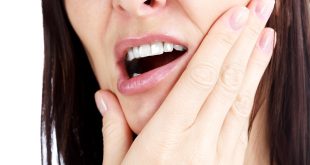What to do on the First Night After Tooth Extraction? A tooth extraction can feel overwhelming, but the first night is crucial for recovery. Knowing how to manage pain, swelling, and complications will ensure a smoother healing process. Go through this detailed guide to help you through the night.

First Night After Tooth Extraction:
During the first few hours, expect some bleeding and discomfort. Bite down gently on gauze to manage bleeding and take prescribed painkillers as directed. Rest and avoid any strenuous activity to prevent swelling or further bleeding.
Managing Post-Extraction Symptoms:
- Bleeding: Bite on a gauze pad, replacing it every 30-40 minutes. Avoid spitting, rinsing, or using straws to protect the clot.
- Pain: Use dentist-prescribed or over-the-counter pain relievers like ibuprofen.
- Swelling: Apply a cold pack to the cheek for 10 minutes at a time and keep your head elevated.
How to Sleep After Tooth Extraction:
Keep your head elevated above your heart to reduce swelling. Use extra pillows to stay propped up and avoid sleeping on the side of the extraction to prevent pressure on the site.
Signs of Post-Extraction Infection:
Be alert for symptoms such as:
- Excessive bleeding
- Severe pain not relieved by medication
- Worsening swelling after 2-3 days
- Fever
If these occur, contact your dentist immediately.
What to Eat After Tooth Extraction:
Stick to soft foods like yogurt, pudding, or soup. Cold foods like ice cream can help soothe the area. Stay hydrated with water but avoid using straws, as suction can dislodge the blood clot.
Foods to Avoid After Wisdom Tooth Extraction:
- Hot foods and beverages
- Alcoholic, caffeinated, or carbonated drinks
- Smoking or tobacco products
- Hard, crunchy, or sticky foods
These foods can delay the healing process and increase the chances of complications.
Post-Extraction Oral Hygiene Practices:
- Avoid brushing the extraction site for 72 hours.
- Gently rinse with warm salt water after 24 hours to keep your mouth clean.
- Brush and floss your other teeth carefully.
FAQs:
1. What can I eat after Tooth Extraction?
Stick to soft foods like yogurt, pudding, or soup. Cold foods like ice cream can help soothe the area.
2. When can I eat solid food after Tooth Extraction?
For simple extractions, you may be able to resume eating solid foods within 7 days, as long as there is no pain or swelling. Start with softer solid foods and gradually work up to harder textures. For more complex extractions (e.g., wisdom teeth removal), it may take 10-14 days before you can comfortably eat solid foods. Follow your dentist’s advice for a personalized timeline.
3. How long does a tooth Extraction take to heal?
The recovery time varies depending on the complexity of your case. Most people feel normal again within a few days. While you can resume routine activities within 48 to 72 hours, full healing of the jawbone typically takes several weeks.
4. Is bleeding normal on the first night?
Yes, mild bleeding is normal. Bite on gauze and avoid actions that could disturb the clot.
5. How long to keep gauze in after tooth extraction?
You should keep the gauze in place for about 30 to 45 minutes after a tooth extraction. Bite down gently to apply pressure and help form a blood clot at the extraction site. If bleeding continues after removing the gauze, replace it with a fresh piece and repeat the process. Be sure to follow your dentist’s specific instructions for optimal healing.
6. When can I smoke after tooth extraction?
After tooth extraction, wait for at least 24-48 hours to prevent complications like dry sockets and delayed healing.
7. Can I drink alcohol 24 hours after tooth extraction?
Yes, you can drink alcohol 24 hours after tooth extraction.
8. How long after Tooth Extraction can I use a Straw?
You should avoid using a straw for at least 7 to 10 days after a tooth extraction. The suction created by using a straw can dislodge the blood clot at the extraction site, leading to a painful condition called “dry socket”. To stay hydrated, drink directly from a glass or cup instead. Always follow your dentist’s specific recommendations.
9. Why no ibuprofen after tooth extraction is recommended?
Ibuprofen is not recommended after tooth extraction as it interferes with the blood clotting mechanism. It delays the healing process, and may sometimes cause infections.
10. Can I brush my teeth after wisdom extraction?
Avoid brushing near the extraction site for the first 72 hours to protect the blood clot and aid healing. Resume brushing gently near the extraction site with a soft-bristled toothbrush, being careful not to disrupt the healing process.
By following these tips and your dentist’s instructions, you’ll set yourself up for a smooth recovery after a tooth extraction.
Also Read: The Worst Day of Pain After Wisdom Tooth Extraction



